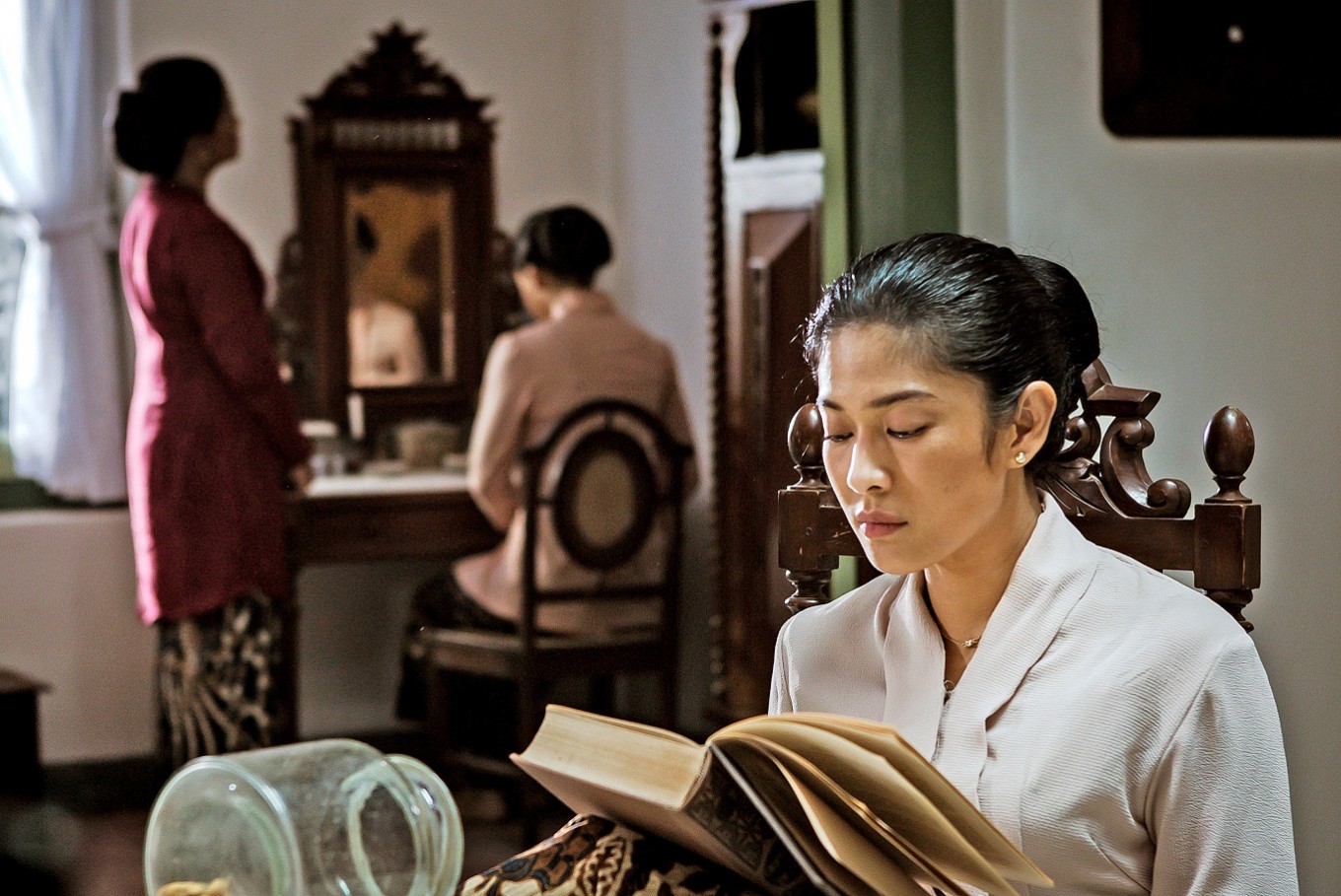The problem with 'Kartini' and film audiences
The problem with Kartini lies not in the historical accuracy of the film, or the little misses and flaws in its evocation. The problem lies in the way that we, as audiences, choose to understand the film.
Change text size
Gift Premium Articles
to Anyone
 Kartini, played by Dian Sastrowardoyo, is allowed to read the books in Dutch sent by her brother during her marriage confinement. (Legacy Pictures/File)
Kartini, played by Dian Sastrowardoyo, is allowed to read the books in Dutch sent by her brother during her marriage confinement. (Legacy Pictures/File)
O
n 21st of May, Hanung Bramantyo’s Kartini premiered at Melbourne’s ACMI theatre, where the majority of audience members who showed up were, not surprisingly, Indonesians. From young university students wearing backpacks, to older women who came adorned in intricately sewn kebayas, it was a full house.
After the film ended, the small room boomed with excited whispers and discussion among the youngsters, all of which were along the lines of:
“Thank God we don’t have to go through that anymore!”
“Geez, if it wasn’t for Kartini, we wouldn’t have been able to study here.”
“My goodness, imagine if we still had to crouch on the floor wearing that tight sarong!”
“Reza Rahadian is soooo gorgeous!”
Read also: Kartini, beyond her famous letters
Well, you get the gist. These discussions, and young people’s reactions to the film were, to me, ludicrous and disappointing. It angers me, because these reactions show how audiences are totally missing the point of the film. The importance of history and biography films like Kartini is not for people to look back on how far Indonesia has gone and feel good about how they’re living in the 21st century or, God forbid, think about how charming Reza Rahadian sounded with a Javanese accent. A historical film’s impact, no matter how well made, will always stay as mere entertainment if we think about it as just something that happened in the past, and will probably never happen again.
One of my history professors used to say that the importance of studying history is so that people don’t make the same mistakes again. It’s a way for us to reflect on past failures and be better equipped when approaching the future. He said that therefore, the most important question we should ask while studying history is not “Why did that happen?” but “How do we go from here?”
Kartini is a movie set in the striking background of historical Javanese society filled with themes of women’s subordination, lack of freedom and constant suffering from polygamy. Sure, this story was set a long time ago, but if we reflect on the present time, how many of these “bad habits” has our society really let go?
Read also: Feminism in Indonesia under siege by Muslim conservatives
The fact is, Indonesia still needs women like Kartini, more than ever. While women are not locked up in their rooms anymore after getting their first period, we are still locked up in terms of our place in society. Just because women are able to go to school and work now, does not mean that women are no longer subjected to oppression.
On average, Indonesian women still earn 42 percent less than their male counterparts. The silence on domestic violence in Indonesia is still deafening. Every single day, there are young girls in Indonesia who are forced to marry men twice, thrice, or even four times their age. And let’s not forget that more than 90 percent of rape cases in the country still go unreported. So, in light of all this, is it really fine for us to just say, “Thank God we don’t have to wear tight sarongs anymore”?
The problem with Kartini lies not in the historical accuracy of the film, or the little misses and flaws in its evocation. The problem lies in the way that we, as audiences, choose to understand the film. Kartini is a film about a great woman who did extraordinary things to empower and improve women’s role in society.
But her fight shouldn’t stop there.
With the lingering scent of oppression left in our contemporary society, maybe it’s time for Indonesia to finally ask: How do we go from here?
---------------
Interested in writing for thejakartapost.com? We are looking for information and opinions from experts in a variety of fields or others with appropriate writing skills. The content must be original on the following topics: lifestyle ( beauty, fashion, food ), entertainment, science & technology, health, parenting, social media, travel, and sports. Send your piece to community@jakpost.com. For more information click here.









